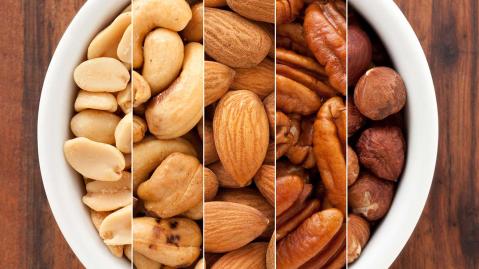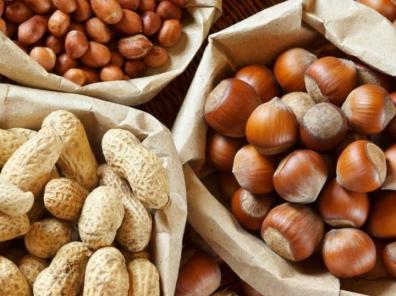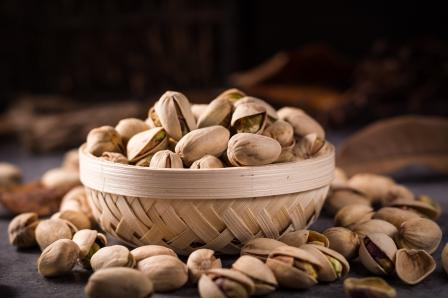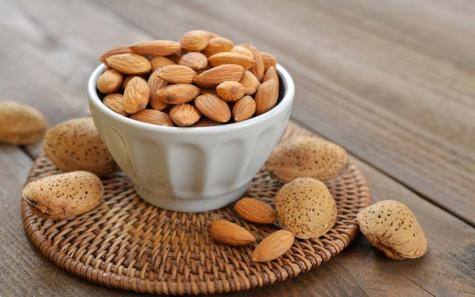Organic peanuts are not just your average nut; they are a powerhouse of nutrients, flavor, and sustainability. From their impressive health benefits to the eco-friendly farming practices used to grow them, organic peanuts deliver a wholesome and delicious experience for both your body and the environment. In this comprehensive guide, we will explore the many facets of organic peanuts, including their nutritional value, sustainable farming methods, and some mouthwatering recipes to help you incorporate more of these nutty gems into your diet. Nutritional Value of Organic Peanuts: Organic peanuts are not only tasty but also packed with essential nutrients that can benefit your overall health.

.
They are a rich source of protein, making them an excellent plant-based option for vegetarians and vegans. Just one ounce of organic peanuts provides about 7 grams of protein, making them a great addition to your daily diet. In addition to protein, organic peanuts are also high in healthy fats, including monounsaturated and polyunsaturated fats, which are known to support heart health. These healthy fats can help lower cholesterol levels and reduce the risk of heart disease when consumed as part of a balanced diet. Organic peanuts are also an abundant source of essential vitamins and minerals, including vitamin E, niacin, folate, and magnesium. Vitamin E is a powerful antioxidant that can help protect your cells from damage, while niacin plays a crucial role in energy production and metabolism. Folate is essential for cell growth and development, especially during pregnancy, and magnesium is important for muscle and nerve function, as well as bone health. Sustainable Farming Practices: Organic peanuts are not only good for your health but also for the environment. Organic farming practices prioritize the use of natural and sustainable methods to grow crops while minimizing the use of synthetic chemicals and pesticides. This not only benefits the soil and water quality but also reduces the overall carbon footprint of agriculture. One of the key principles of organic farming is crop rotation, which helps maintain soil fertility and reduce the risk of pests and diseases. By rotating crops such as peanuts with other plants, farmers can prevent the buildup of harmful pathogens in the soil and improve the overall health of the ecosystem. Organic peanut farmers also use natural fertilizers, such as compost and manure, to nourish the soil and promote plant growth. These organic fertilizers provide essential nutrients to the crops without the use of synthetic chemicals, helping to maintain soil health and biodiversity.
..
 Furthermore, organic peanut farmers practice integrated pest management (IPM) techniques, which involve using natural predators, crop rotation, and resistant plant varieties to control pests and reduce the need for chemical pesticides. This approach not only protects the health of the environment but also ensures the safety of the workers and consumers who eat the peanuts. Health Benefits of Organic Peanuts: In addition to their impressive nutritional value, organic peanuts offer a wide range of health benefits, thanks to their unique combination of nutrients and bioactive compounds. Some of the key health benefits of organic peanuts include: 1. Heart Health: The monounsaturated and polyunsaturated fats found in organic peanuts can help lower cholesterol levels and reduce the risk of heart disease. These healthy fats also have anti-inflammatory properties that can benefit cardiovascular health. 2. Weight Management: Despite their relatively high calorie content, organic peanuts can actually help with weight management when eaten in moderation. The protein and fiber in peanuts can help you feel full and satisfied, reducing cravings for less healthy snacks. 3. Blood Sugar Control: Organic peanuts have a low glycemic index, meaning they cause a slow and steady rise in blood sugar levels. This can help prevent blood sugar spikes and crashes, making them a great snack option for people with diabetes or those looking to manage their blood sugar levels. 4. Brain Health: Organic peanuts are rich in vitamin E, an antioxidant that has been linked to improved cognitive function and reduced risk of cognitive decline as we age. Niacin, another nutrient found in peanuts, plays a crucial role in brain health and can help support overall cognitive function.
Furthermore, organic peanut farmers practice integrated pest management (IPM) techniques, which involve using natural predators, crop rotation, and resistant plant varieties to control pests and reduce the need for chemical pesticides. This approach not only protects the health of the environment but also ensures the safety of the workers and consumers who eat the peanuts. Health Benefits of Organic Peanuts: In addition to their impressive nutritional value, organic peanuts offer a wide range of health benefits, thanks to their unique combination of nutrients and bioactive compounds. Some of the key health benefits of organic peanuts include: 1. Heart Health: The monounsaturated and polyunsaturated fats found in organic peanuts can help lower cholesterol levels and reduce the risk of heart disease. These healthy fats also have anti-inflammatory properties that can benefit cardiovascular health. 2. Weight Management: Despite their relatively high calorie content, organic peanuts can actually help with weight management when eaten in moderation. The protein and fiber in peanuts can help you feel full and satisfied, reducing cravings for less healthy snacks. 3. Blood Sugar Control: Organic peanuts have a low glycemic index, meaning they cause a slow and steady rise in blood sugar levels. This can help prevent blood sugar spikes and crashes, making them a great snack option for people with diabetes or those looking to manage their blood sugar levels. 4. Brain Health: Organic peanuts are rich in vitamin E, an antioxidant that has been linked to improved cognitive function and reduced risk of cognitive decline as we age. Niacin, another nutrient found in peanuts, plays a crucial role in brain health and can help support overall cognitive function.
…
Incorporating Organic Peanuts into Your Diet: There are countless ways to enjoy the nutty goodness of organic peanuts in your daily diet. Whether you prefer them raw, roasted, or as part of a delicious recipe, organic peanuts can add flavor, texture, and nutrition to a variety of dishes. Here are some creative ways to incorporate organic peanuts into your meals and snacks: 1. Peanut Butter: Homemade peanut butter is a tasty and nutritious spread that you can enjoy on toast, oatmeal, or in smoothies. Simply blend organic peanuts in a food processor with a touch of salt and honey for a delicious and wholesome treat. 2. Peanut Sauce: Peanut sauce is a versatile and flavorful condiment that pairs well with stir-fries, salads, and noodles. Combine organic peanut butter with soy sauce, garlic, ginger, and a splash of lime juice for a tangy and savory sauce that will elevate your dishes. 3. Peanut Snacks: Roasted organic peanuts make a satisfying and crunchy snack that you can enjoy on their own or mixed with dried fruit, seeds, and dark chocolate for a wholesome trail mix. You can also experiment with different seasonings, such as chili powder or cinnamon, to create unique and tasty peanut snacks. 4. Peanut Desserts: Organic peanuts can add a decadent touch to your favorite desserts, such as cookies, brownies, and energy balls. Incorporate chopped peanuts into the batter or sprinkle them on top for a nutty and delicious treat that will satisfy your sweet tooth. Conclusion: Organic peanuts are not just a tasty snack; they are a nutritional powerhouse that can benefit your health and the environment. From their impressive array of nutrients to the sustainable farming practices used to grow them, organic peanuts offer a wholesome and sustainable option for consumers looking to make healthier food choices. By incorporating more organic peanuts into your diet, you can enjoy their delicious flavor, crunchy texture, and numerous health benefits while supporting eco-friendly farming practices that protect the planet for future generations.




Your comment submitted.